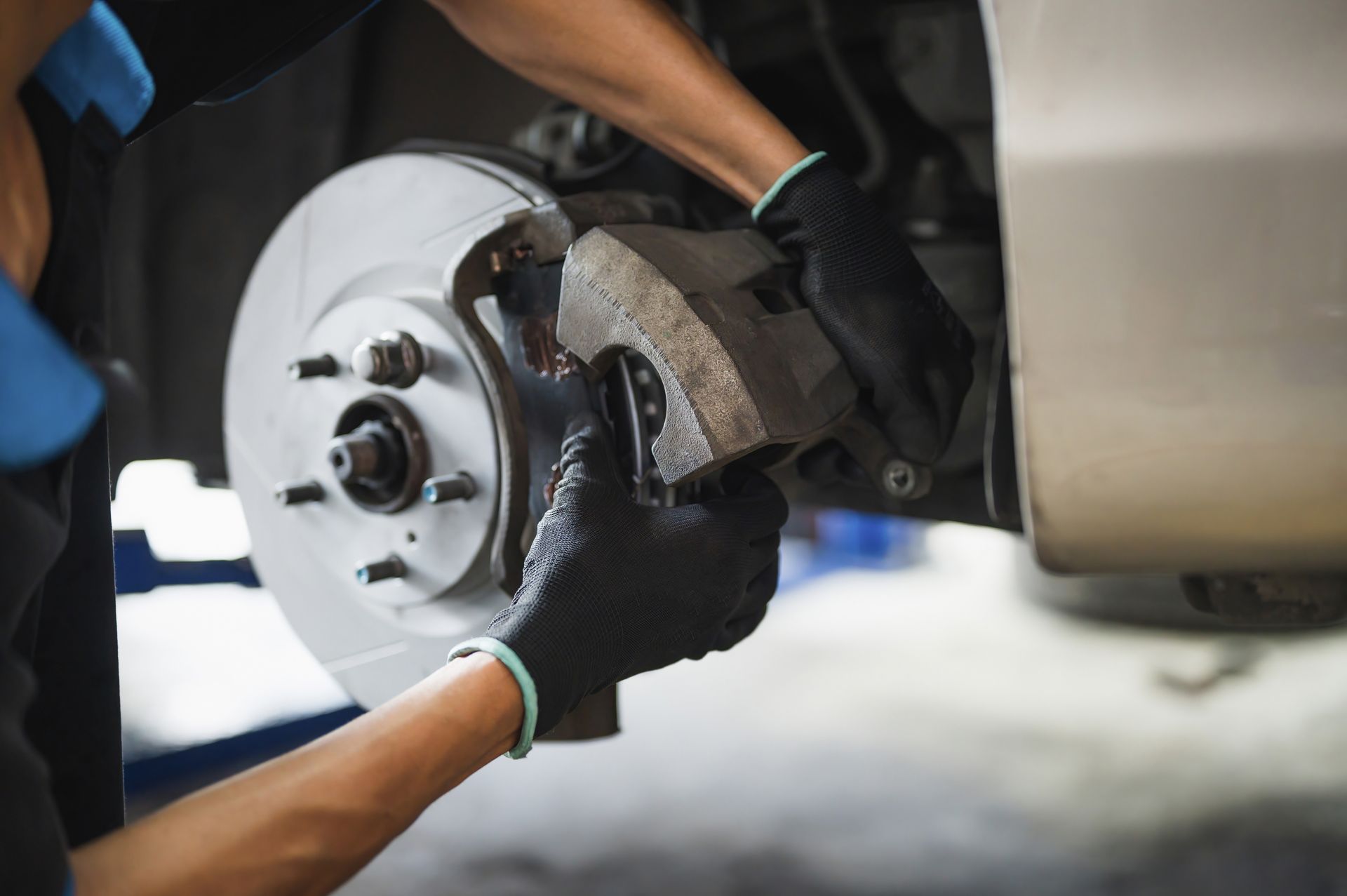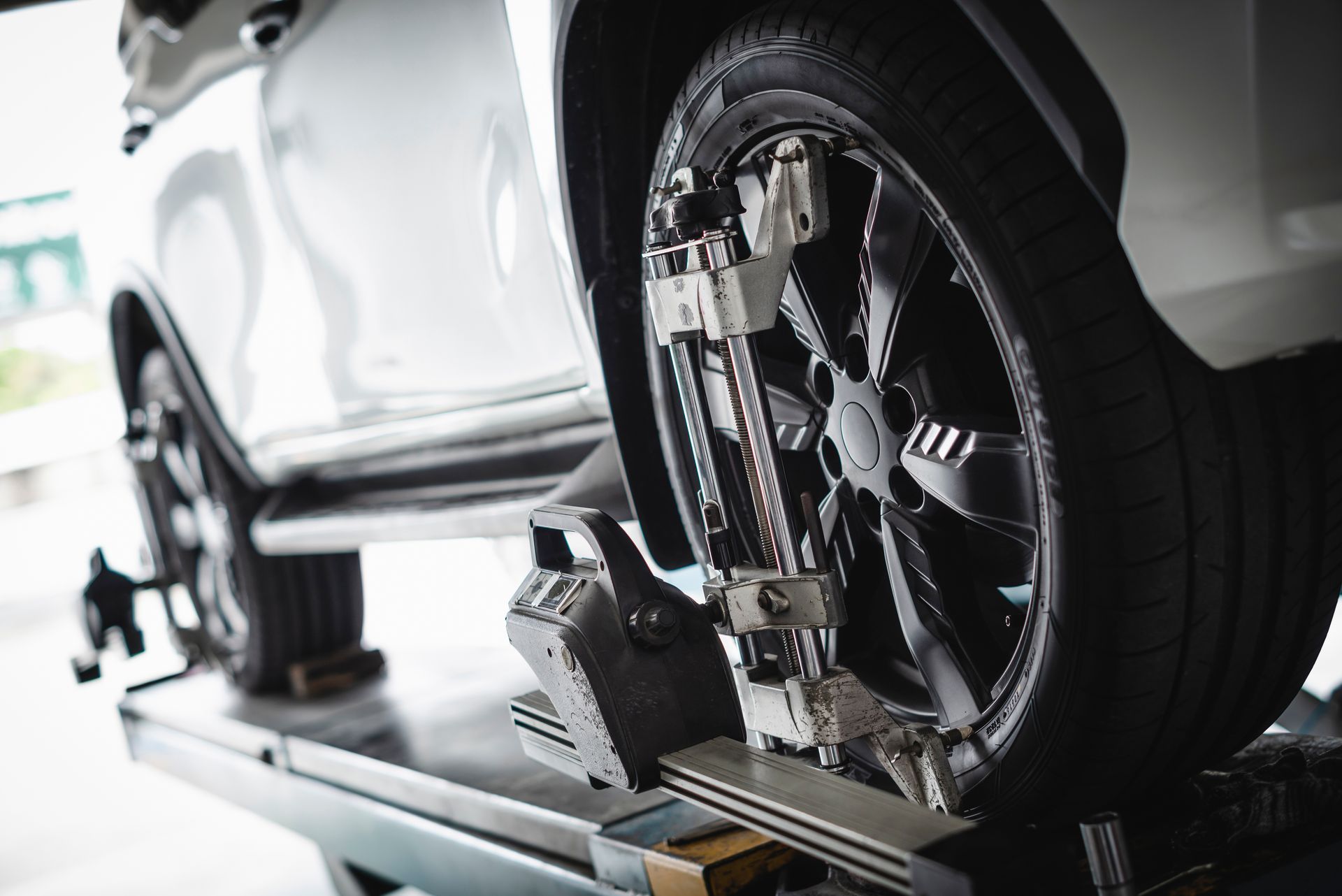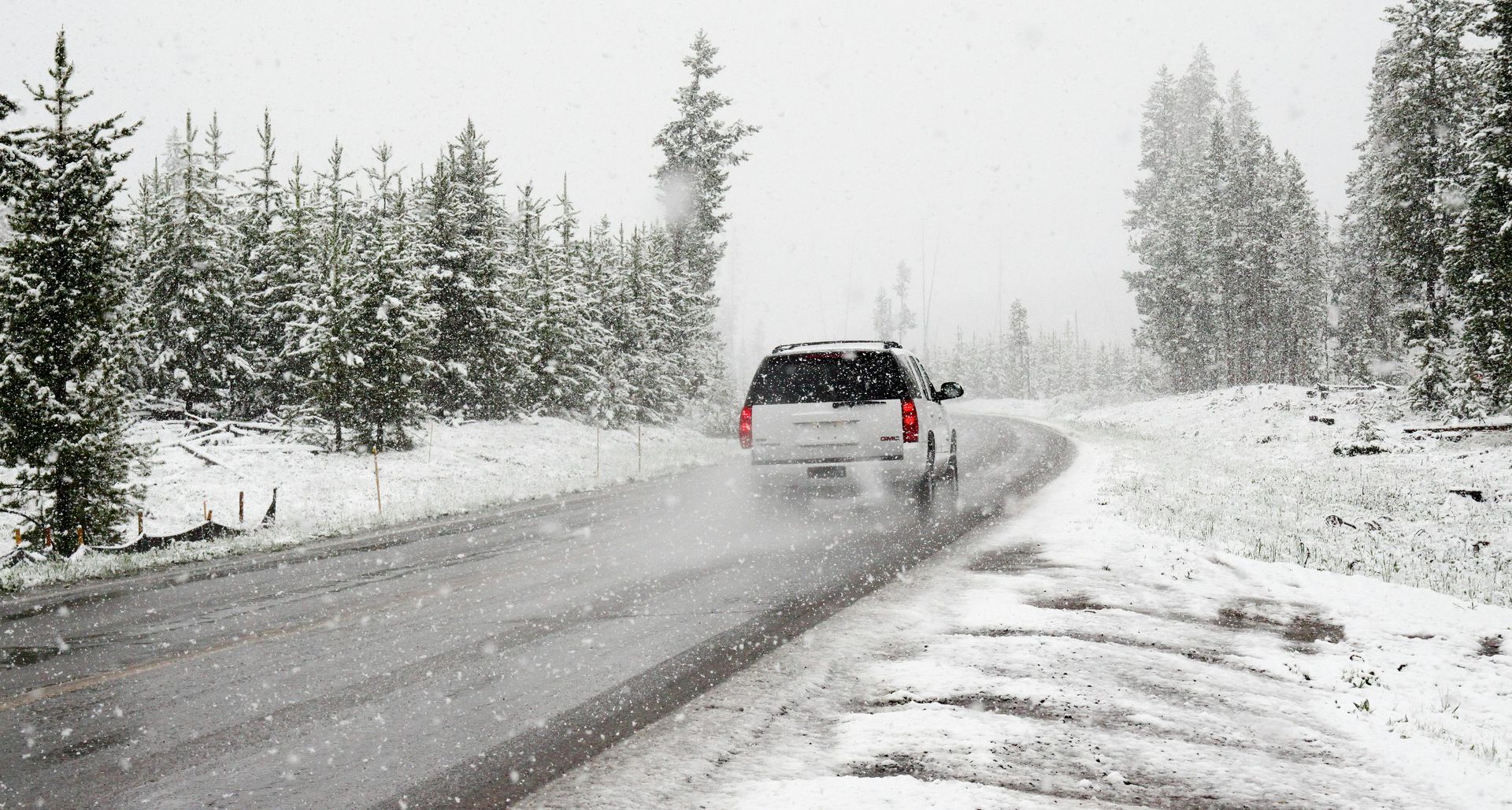Getting Your Tires Ready for Wet Fall Roads in Colorado
Fall in Fort Collins brings stunning mountain views as aspen leaves turn gold, but it also brings challenging driving conditions that can catch drivers off guard. Colorado's fall weather creates a perfect storm of wet roads, early snow, and slippery conditions that demand proper tire preparation.
From sudden afternoon thunderstorms to early season snow in the foothills, Fort Collins drivers face rapidly changing road conditions throughout fall. Your tires are the only thing connecting your vehicle to the road, making proper tire preparation crucial for safe autumn driving in Northern Colorado.
Don't wait for the first slippery morning to discover your tires aren't ready for Colorado's unpredictable fall weather. Taking action now can prevent accidents and keep you safe on wet roads from downtown Fort Collins to the mountain highways.
Why Colorado Fall Roads Are Particularly Challenging
Colorado's fall driving conditions present unique challenges that many drivers underestimate. Morning frost creates slippery surfaces that disappear by afternoon, only to return as evening temperatures drop. This freeze-thaw cycle makes roads unpredictable, especially on shaded sections along the Poudre River or in tree-lined neighborhoods.
Fall also brings Colorado's infamous "upslope" weather patterns that can dump rain or snow with little warning. These sudden storms turn dry roads into slick hazards within minutes. Combined with shorter daylight hours and sun glare during morning and evening commutes, tire performance becomes critical for safe driving.
Wet leaves create another hazard specific to fall driving. When leaves accumulate on Fort Collins streets and become wet from rain or morning dew, they create surfaces nearly as slippery as ice. Your tires need adequate tread to maintain traction on these deceptively dangerous surfaces.
Tread Depth: Your First Line of Defense
Tire tread depth directly affects your car's ability to grip wet roads and channel water away from the tire surface. Colorado law requires minimum tread depths for mountain driving, but safe wet weather driving demands even more tread than legal minimums.
Use the penny test to check tread depth quickly. Insert a penny into your tire's tread groove with Lincoln's head pointing down. If you can see the top of Lincoln's head, your tires have less than 2/32" of tread and need immediate replacement.
For wet Colorado roads, consider replacing tires when tread reaches 4/32". This extra tread depth significantly improves wet weather traction and reduces stopping distances on rain-soaked streets around Fort Collins.
Check tread depth across the entire tire surface, not just one spot. Uneven wear patterns indicate alignment problems, improper inflation, or suspension issues that affect wet weather performance.
Tire Pressure: Maintaining Proper Contact
Proper tire pressure becomes even more important during fall weather transitions. Colorado's dramatic temperature swings affect tire pressure—losing about one PSI for every 10-degree temperature drop.
Those cool Fort Collins mornings that start at 40 degrees and warm to 70 degrees by afternoon create constant pressure changes. Low tire pressure reduces the tire's contact patch with the road, decreasing traction on wet surfaces.
Check tire pressure weekly during fall months, preferably when tires are cold. Use the pressure recommendations found on your driver's side door jamb, not the maximum pressure printed on the tire sidewall.
Don't forget your spare tire. Fall weather increases the likelihood of tire damage from potholes and road debris, making a properly inflated spare tire essential for Colorado drivers.
All-Season vs. Winter Tires for Fall
All-season tires work well for most Fort Collins driving conditions, but their performance decreases significantly when temperatures drop below 45 degrees. The rubber compounds in all-season tires become stiffer in cold weather, reducing grip on wet and icy surfaces.
Winter tires use special rubber compounds that stay flexible in cold temperatures, providing better traction on wet, snowy, and icy roads. If you frequently drive mountain highways or face early snow conditions, winter tires offer superior safety.
Consider switching to winter tires by early November in Fort Collins. Even if roads are still mostly dry, winter tires perform better than all-seasons once temperatures consistently drop below freezing.
For drivers who only occasionally encounter snow, high-quality all-season tires with good wet weather ratings can provide adequate performance for most fall conditions around Fort Collins.
Recognizing Tire Problems Before They Become Dangerous
Watch for warning signs that indicate tire problems developing during fall weather changes:
Vibration while driving often indicates tire damage or balance problems that worsen in wet conditions. Don't ignore vibrations, especially after hitting potholes on Fort Collins streets.
Pulling to one side suggests alignment issues or uneven tire wear that reduces wet weather control. This becomes more dangerous on slippery fall roads.
Visible damage like cuts, bulges, or embedded objects needs immediate attention. Fall driving conditions stress damaged tires more than summer driving.
Age-related deterioration affects tires over six years old, regardless of tread depth. Check the manufacturing date on your tire sidewall—tires older than six years should be replaced.
Wet Weather Driving Techniques
Even with properly prepared tires, wet fall roads demand adjusted driving techniques. Reduce speed when roads are wet, especially during the first few minutes of rainfall when oils rise to the surface.
Increase following distances on wet roads. Your stopping distance can double on wet pavement compared to dry conditions, even with good tires. This extra space becomes crucial when leaves or early frost make roads extra slippery.
Avoid sudden movements like hard braking, quick acceleration, or sharp turns that can break traction. Smooth, gradual inputs help maintain control on Colorado's unpredictable fall roads.
Don't Ignore Early Warning Signs
Small tire problems become big safety hazards quickly during fall weather. A slightly worn tire that performed fine all summer might become dangerous on wet leaves or frost-covered roads.
Regular tire rotations help ensure even wear and extend tire life, especially important given Colorado's varied driving conditions from city streets to mountain highways.
Professional tire inspections catch problems before they leave you stranded or cause accidents during Colorado's challenging fall weather.
Expert Tire Services at Total Automotive
Don't risk your safety on Colorado's unpredictable fall roads with questionable tires. At Total Automotive in Fort Collins, our experienced technicians provide comprehensive tire services to keep you safe in all weather conditions.
From tire pressure monitoring to complete tire replacement, we know what Fort Collins drivers need to handle wet roads, early snow, and rapidly changing conditions. We offer quality tire brands and expert installation to ensure optimal performance on Colorado roads.
Schedule your tire inspection today by calling (970) 900-6735 or booking online. Make sure your tires are ready for whatever fall weather Fort Collins delivers.












